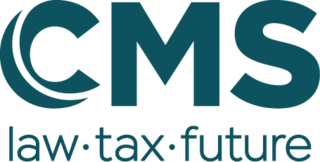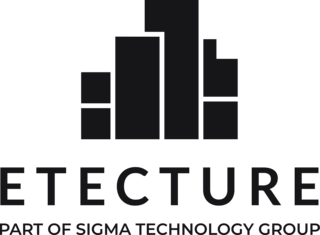Challenges
- Multilingual: Truly global, CMS needs to have its website accessed in multiple languages
- Multisite: CMS operates as independent firms in each jurisdiction and therefore must display content that is relevant to that country or region
- Adaptability: No two jurisdictions are the same and CMS needed a system that could accommodate every technological or compliance issue
- Permissioning: With a team of around 50 that regularly edits the site, access rights and approvals are pivotal
- CMS’s subscription service Law-Now was on a version of Sitecore that was being taken out of service
Project Summary
- Consolidation of sites on Ibexa
- Establish workflows and permission settings to ensure editors only work on the part of the site relevant to them
- Migrate Law-Now from Sitecore to Ibexa DXP
- Modernize digital stack by re-platforming to Ibexa DXP
Business Benefits and ROI
- Page Builder and Form Builder make it much easier and more intuitive for users to update and add content to the site
- Ability to have parent and child pages to keep track of which pages are translated
- Capacity to quickly create pages in a particular language or for a particular jurisdiction
- Content editors no longer have to navigate between Sitecore and Ibexa to handle Law-Now and cms.law content
- Migration to Ibexa DXP will bring taxonomy and integration benefits, and allow for more agility in innovation going forward
About CMS
CMS spans more than 45 jurisdictions. In 2023, CMS was ranked as a top 5 law firm worldwide, based on headcount. Its presence is most dense in Germany, where CMS Hasche Sigle has eight offices, and in the UK, with CMS Cameron McKenna Nabarro Olswang operating nine. However, the outlook and culture of CMS are truly international, and it serves more than 6,300 lawyers across jurisdictions as different as Peru and Israel, or Kenya and Montenegro.
Streamlining workflows
This combination of deep local market understanding with a global overview is one of the unique strengths of CMS, but it creates challenges, especially around content. “There’s a lot of things we have to think of because we are a global organisation,” says Michelle Albanese, Senior Technical Product Manager at CMS. “We want to communicate a coherent CMS message in each of our jurisdictions while complying with the legal restrictions that are in place in every market. And this tension between local and global is resolved by Ibexa technology, which CMS implemented before I joined the organisation.”
At the time, CMS’s digital architecture was fragmented across ten different sites; these were consolidated on eZ Platform. “CMS opted for Ibexa’s eZ because it was both powerful and highly customisable which is essential for capturing the legal context and requirements for each jurisdiction – because no two are the same. Each jurisdiction presents its own unique set of granular challenges, but we have always found Ibexa and our digitalisation partner ETECTURE up to the task.”
Another consideration was the sophistication of eZ’s permission setting.
“This is key,” says Michelle, “because we have about 50 web managers looking after their own ‘branch’ in the eZ backend. It’s important that web managers don’t have full access to sites outside their jurisdiction, yet at the same time we rely heavily on shared content that is multi-jurisdictional. So, we have created a system of permissioning that gives firms ‘contained’ within different branches of the site the ability to collaborate by working on the same piece of content, but without affecting the original.
“For an international organisation such as CMS this is crucial because many local firms need to add translations. Within eZ, they can take existing blocks and add translations to it, and they have full management rights over the translation, but they can’t change a word of the original content.”
Migrating to Ibexa DXP
As part of its strategic objective to modernise its digital stack, CMS greenlighted two important projects that involve Ibexa. One is to migrate the site from eZ to Ibexa DXP; the other was to migrate the CMS Law-Now subscription service from Sitecore to Ibexa DPX which was completed by January 2023.
The roughly 60,000 subscribers to Law-Now receive legal content written by CMS lawyers which is posted on the site and sent out as emails – some half a million messages are forwarded each month. “Law-Now was on a version of Sitecore that was to be taken out of service by the end of 2022, so we had a choice to make,” says Michelle. “We could either upgrade to a current version of Sitecore or migrate to Ibexa DXP. I advocated strongly for the latter solution.”
“There were compelling reasons for this. Migrating Law-Now to Ibexa DXP would consolidate our digital landscape and make strategic sense because we had already decided to move the main site from eZ to Ibexa DXP. Another crucial factor was our digitalisation partner ETECTURE. We were confident that they would be able to deliver an MVP within a very tight time frame as proved to be the case.
“Law-Now continued to function and the migration is now fully complete. It’s been a great success. Content creators and editors who had to navigate between two systems now use just one, and a very user-friendly one at that. Another plus is that CMS has one less license agreement and vendor relationship to manage. Also, Ibexa DXP offers more possibilities in terms of data analysis and this will help us to create a rich, future-facing experiences for our customers.”
The project to migrate the cms.law sites has started and is on course to be completed by the end of this year. The impulse to finally pull the trigger and adopt Ibexa DXP was two-fold, as Michelle explains.
Why CMS chose Ibexa DXP
“The version of eZ we’re currently on is due up in March 2023. Certain security features have fallen out of date and are impractical or even impossible to update within eZ. We had to take the leap for security reasons but there was also a broader feeling that this was the right time because we want to modernise our digital stack.
“And Ibexa DXP platform really looks like something that is bringing in all kinds of features that will enable us to bring more value to our clients.”
One of these features is a newer version of the API, the GraphQL version 2, and Ibexa Connect, the system’s native iPaaS which brings integration management into the platform.
“Another addition is the Tag Manager, which will finally allow us to have a central set of taxonomies,” Michelle adds. “At the moment, we need a lot of separate tools that we’ve created ourselves to be able to align different aliases and multiple sets of taxonomies and map those together.
“It just gets messy, but using Ibexa DXP will hopefully allow us to better manage our data across the different systems. That is our strategic ambition: to modernise our digital footprint and to get more out of our data.”
A huge pillar of that vision is the migration to Ibexa DXP. “We have always felt in safe hands with Ibexa and ETECTURE so we are confident we will complete this project successfully,” concludes Michelle. “Ibexa DXP interfaces powerfully with the kind of change we want to see at CMS, and we haven’t properly begun to explore all its potential for us. That journey of discovery begins now.”

